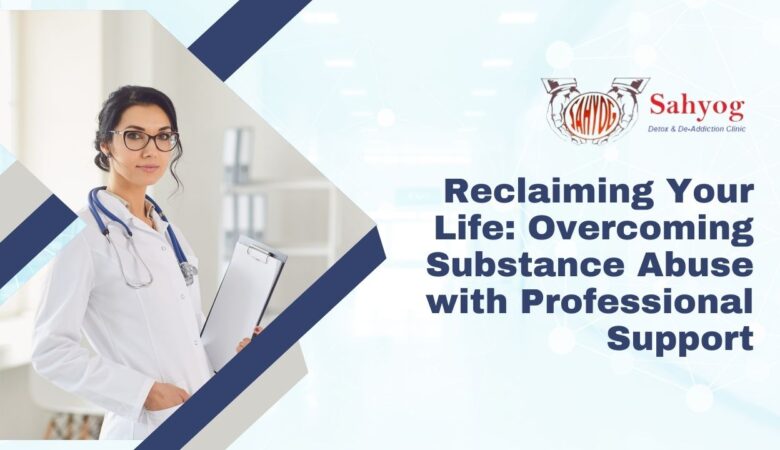LGBTQ+ Community and Substance Abuse: Unique Challenges and Support
Welcome to our blog post on the unique challenges faced by the LGBTQ+ community when it comes to substance abuse. This is a topic that deserves attention and understanding, as individuals within this diverse community often face additional hurdles in their journey towards recovery. In this article, we will explore these challenges, discuss how the LGBTQ+ community can provide support, and highlight available resources for those who are struggling with addiction. So grab a cup of coffee and join us as we delve into this important discussion! What are the unique challenges faced by LGBTQ+ individuals with substance abuse disorders? LGBTQ+ individuals with substance abuse disorders often face a unique set of challenges that can make their journey to recovery even more difficult. One major challenge is the stigma and discrimination they encounter, both within society and sometimes even within the healthcare system. This can lead to feelings of shame, fear, and isolation, making it harder for them to seek help or access appropriate treatment. Another challenge is the higher rates of mental health issues within the LGBTQ+ community. Research has shown that LGBTQ+ individuals are at an increased risk for depression, anxiety, and other mental health disorders. These underlying conditions can contribute to substance abuse as a form of self-medication or coping mechanism. In addition, many LGBTQ+ individuals may struggle with acceptance from their family members or social networks. Rejection by loved ones can cause immense emotional pain and further exacerbate existing substance abuse problems. Furthermore, transgender individuals in particular may face unique challenges when it comes to addiction treatment. They may encounter difficulties finding providers who are knowledgeable about transgender healthcare needs or who offer inclusive environments where they feel safe and respected. Understanding these unique challenges faced by LGBTQ+ individuals with substance abuse disorders is crucial in order to provide effective support and promote successful recovery outcomes. How can the LGBTQ+ community support those struggling with addiction? The LGBTQ+ community plays a crucial role in supporting individuals who are struggling with addiction. One way they can provide support is by creating safe and inclusive spaces where individuals feel accepted and understood. These spaces can be online or in-person, such as LGBTQ+-specific recovery groups or support networks. Another important way the community can offer support is by promoting education and awareness about substance abuse within the LGBTQ+ population. By sharing resources, information, and personal experiences, they can help reduce stigma surrounding addiction and encourage open conversations about seeking help. Additionally, advocating for LGBTQ+-inclusive treatment options is vital. Many individuals may face unique challenges related to their sexual orientation or gender identity when accessing treatment services. Ensuring that healthcare providers are knowledgeable about these issues and providing culturally competent care is crucial in supporting those struggling with addiction. Furthermore, offering peer mentoring programs or buddy systems within the community can provide valuable support to those in recovery. Having someone who understands their specific struggles can make a significant difference in someone’s journey towards sobriety. By fostering a sense of belonging, raising awareness, advocating for inclusive treatment options, and providing one-on-one support through mentorship programs, the LGBTQ+ community continues to play an essential role in helping individuals navigate their path to recovery from substance abuse disorders. What resources are available to LGBTQ+ individuals with substance abuse disorders? Resources for LGBTQ+ individuals with substance abuse disorders are crucial in providing the support and guidance they need to overcome their addiction. Fortunately, there are several organizations and programs specifically tailored to address the unique challenges faced by this community. One valuable resource is LGBTQ+-focused treatment centers that offer specialized care for individuals struggling with substance abuse. These centers provide a safe and inclusive environment where clients can feel understood and supported throughout their recovery journey. Additionally, many LGBTQ+ support groups exist, both online and in-person, where individuals can connect with others who share similar experiences. These groups offer a sense of community and understanding, allowing participants to openly discuss their struggles while receiving encouragement from peers who truly comprehend the challenges they face. Furthermore, LGBTQ+-affirming therapists or counselors can play a vital role in helping individuals navigate their substance abuse issues. These professionals possess an understanding of the unique factors that contribute to addiction within the LGBTQ+ community, such as minority stressors or discrimination-related trauma. They can provide targeted therapy approaches that address these underlying causes while supporting overall recovery efforts. In terms of online resources, websites like The Trevor Project or LGBT National Help Center offer helplines staffed by trained professionals who specialize in serving LGBTQ+ individuals struggling with substance abuse. These platforms ensure that help is readily available at any time day or night for those seeking information, assistance, or someone to talk to about their situation. Having access to resources specifically designed for LGBTQ+ individuals significantly improves their chances of overcoming substance abuse disorders successfully. By tailoring support services to address the unique challenges faced by this community and providing them with a safe space where they can fully express themselves without judgment or stigma; we create opportunities for healing and growth among those most vulnerable. Also read: 5 Group Therapy Activities for Adults with Substance Abuse Conclusion In this article, we have explored the unique challenges faced by LGBTQ+ individuals with substance abuse disorders and discussed how the LGBTQ+ community can provide support. We have also highlighted some resources that are available to help LGBTQ+ individuals who are struggling with addiction. It is important for society as a whole to understand and address these challenges in order to create an inclusive and supportive environment for all individuals, regardless of their sexual orientation or gender identity. By acknowledging the specific struggles faced by the LGBTQ+ community when it comes to substance abuse, we can work towards finding solutions that cater to their specific needs. The journey towards recovery from addiction can be difficult, but with proper support and understanding, it is possible for anyone to overcome these challenges. It is crucial for the LGBTQ+ community to come together


